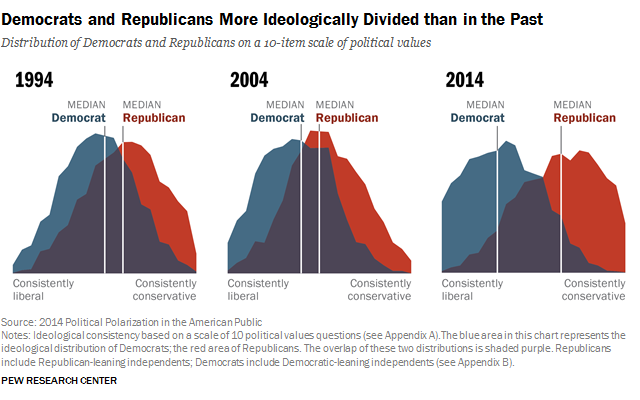
Polarizing political factions restrict compromise
In his farewell address in 1796, George Washington said, “However political parties may now and then answer popular ends, they are likely in the course of time and things, to become potent engines, by which cunning, ambitious, and unprincipled men will be enabled to subvert the power of the people and to usurp for themselves the reins of government, destroying afterwards the very engines which have lifted them to unjust dominion.”
The father of our country used some of his final words as president to warn the American people about the dangers of polarizing viewpoints and dividing into separate political factions. These people were in the early stages of this new governmental system and they were still testing the waters with this courageously exciting experiment called America.
Washington understood the potential vulnerabilities of intentionally avoiding compromise for the unfounded purpose of retained unity with already agreeing factions. He foresaw the dangers of the easy way out: comfortable ignorance. These words of wisdom are important, and voters and politicians alike should take note of them leading into the November elections and beyond.
Even on the USD campus, rarely do I find students who are distinctly moderate. They are very clear with their approval or distaste for candidates like Donald Trump and Hillary Clinton. Organizations like College Republicans and College Democrats meet separately and talk from very different points of view about the current political state of the world.
Washington understood that, when people divide into factions, they tend to overlook logic for a sense of communal identity.
Unfortunately today, we are more politically polarized than ever before. Even political scientists realize the difficulty in an American democracy to reach compromise. We often talk more than we listen, and we tend to profess to know more than we actually do.
While these truths may be mere characteristics of human nature, this sort of societal dissent from thoughtful consideration has never been more intense, and the resulting implications are rendering themselves dangerous for the future state of reasoning in our country.
Compromise has possessed a negative connotation in society. The more politically divisive and subsequently polarized a society becomes, the less that society views compromise in a good light. Saint Josemaria Escriva is known to have said, “Compromise is a word found only in the vocabulary of those who have no will to fight.”
While this quotation possesses a certain level of truth, I believe disagreement shouldn’t ensue for the purposes of disagreeing. All too often in today’s ever more polarizing, politically-driven world, disagreement occurs in the form of ignoring. Even worse, some disagreements silence dissenting perspectives for a strengthened sense of like-minded togetherness against “the other guys.”
Simply put, we live in an “us versus them” world. This way of thinking can cloud judgement and logic, overshadowing the actual issues at stake.
It’s often thought that periods of self-questioning yield a more moderate understanding of the world. While I cannot speak to the validity of this theory in a general sense, I can say my predisposition has only been invigorated further as a result of inquiring and listening to the perspectives of others with whom I disagree.
I have been able to better identify exactly what defines me, my personal value system, and what particularly distinguishes myself from others in the world. I haven’t only further reinforced my political ideology generally, but I’ve also specifically targeted my personal placement within this broad framework of political thought. Especially in college, an age of self-discovery, compromise and open-mindedness are crucial.
Instead of always surrounding themselves with like-minded perspectives, students should take a chance and expose their current perspectives to the “dangers” of what is different. The worst possible outcome of listening to others with differing perspectives is a better understanding of personal beliefs and a realized opportunity to expand your own overall awareness of the world.
